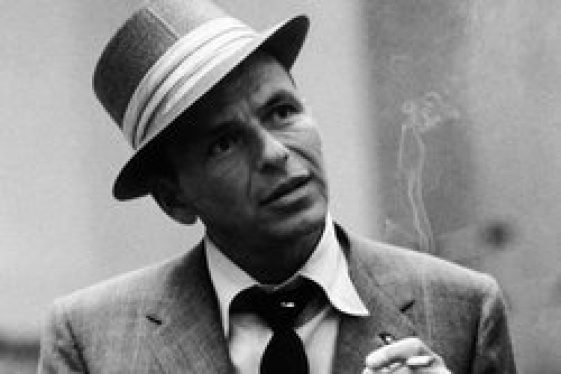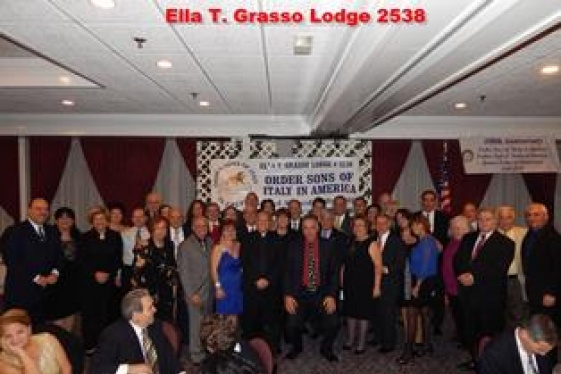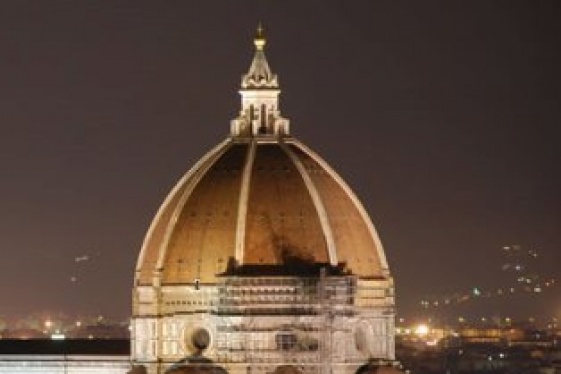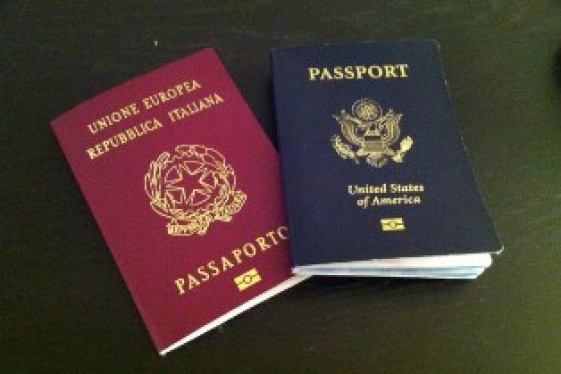

IN THE MOOD IN OUR OWN WAY: a documentary written, produced, directed and narrated by LUCA MARTERA, edited by CARLA BRANDOLINI, linguistic consultant and additional voice narration FRANK PISATURO. A Sexual Radar Production, 2018 https://vimeo.com/296585302
From the ancient Italian tradition of the Great Opera Houses to the Neapolitan melodies of 20’s in New York; from Harry Warren’s (real name: Salvatore Antonio Guaragna) musicals to Louis Prima’s swing; from the "Voices" Frank Sinatra and Liza Minnelli to the Rock-Pop age by Frank Zappa, Bruce Springsteen, Bon Jovi, Madonna and Lady Gaga, there are hundreds of artists with Italian ancestry, without whom the history of American music would not be, as we know it. In the Mood in Our Own Way tells all about this along two centuries of music clashes between Italy and the United States. The documentary got the Honorable Mention by the National Italian American Foundation (NIAF) and Italian Sons and Daughters of America (ISDA) at The Russo Brothers Italian American Film Forum 2018.
Italy is home to the center of the world's largest religious body - the Roman Catholic Church. From the rich and mysterious gregorian chants of the middle ages, to the newer hymns and praise music found in your local church down the street, the Italian culture continues to have a strong influence. Lorenzo da Ponte, Mozart’s playwright was the key figure, who moved to Philadelphia with his expertise in Italian classic and sacred music in a critical moment.
America, a land of immigration and an extraordinary laboratory for ideas, was a cultural melting pot in which great figures in Italian artists succeeded: Enrico Caruso, Arturo Toscanini, and in more recent years Luciano Pavarotti, Riccardo Muti and Andrea Bocelli. Beyond Frank Sinatra, there are many relevant artists noted for their talent and repertoire: Louis Prima, Tony Bennett, Mario Lanza, Connie Francis, Perry Como, Frankie Laine, Dean Martin, Frankie Avalon, Vic Damone, and Al Martino. At the same time, many Italians singers and musicians were influenced by American music: Renato Carosone, Natalino Otto, Quartetto Cetra, Alberto Rabagliati, Fred Buscaglione, and more recently James Senese and Enzo Avitabile.
In 1917 Nick La Rocca’s Italian American band released the first jazz recording, Livery Stable Blues. But few people know that the first Italian contribution to the history of American music was older. In 1805 a bunch of Sicilian musicians were engaged to play in the newborn Marine Marching Band in Washington DC, and since then they passed on their knowledge of drums and trumpets to African-Americans who further created jazz.
If this story is well known to the fans and experts, it’s not the same for the large audience. They just remember big names like Caruso and Sinatra, not knowing the great contribution that Italians gave to jazz, blues, musicals and film scoring, genres that go beyond pop-rock.
The American Dream was for million of Italians immigrants the eternal challenge of man entering into the unknown, seeking out a good future. Music was a reflection of this extraordinarily humanistic adventure, but also the indication of surprising results achieved by the descendants of those migrants; the thrilling epic of everyday experiences by millions of men and women accompanied by the successes of artists who created the music of our time.
This documentary does not want to be another Italian immigration journey that everyone is familiar with, but a tribute to quality music, a dreamlike atmosphere, and the cultural influences that created the everlasting magic of lyrics and compositions.
Among the connotative qualities of being Italian, there is the innate disposition to artistic and musical sensitivity and creativity. Music is the expression of a people, their beauty, their fantasy. Many Italian immigrants played in bands in their small villages and their familiarity with the musical instruments was well known and appreciated, as well as their knowledge of a wide range of popular repertoires.
It will not be a simple parade of names but the explanation of why those names have been and are still so important in the history of music. The other purpose is to make less-known Italian musicians known to younger generations through tons of anecdotes and curious facts. In the Mood in Our Own Way covers the entire history of the Italian contribution to American Music, including the craziest (Liberace and Weird Al Yankovic, both half-Italian) and Italian American Music Composers for Movies: from Henry Mancini to Bill Conti, from Angelo Badalamenti to the the Italian Masters: Nino Rota, Ennio Morricone and Giorgio Moroder.
America is a great nation, built on shared cultures and traditions. In the United States, it is especially true: history informs who we are. It helps us appreciate and understand things in a deeper way. Even the everyday things we take for granted, like the music we listen to. The catchy tunes we grew up with, some of our favorite albums and bands - have been influenced by the Italian-Americans in the US.
ITALIANO
Dalla lirica dei grandi teatri d’opera al "jazz bianco" di New Orleans inventato da Nick La Rocca, dal musical di Harry Warren (vero nome: Salvatore Antonio Guaragna) allo swing di Louis Prima, dalle "Voci per eccellenza" Frank Sinatra e Liza Minnelli sino al pop-rock di Frank Zappa, Bruce Springsteen, Bon Jovi, Madonna e Lady Gaga, centinaia sono gli artisti di origine italiana senza i quali la musica americana non sarebbe stata come la conosciamo.
In the Mood in Our Own Way (tradotto più o meno suona: Come ci va a modo nostro) è il titolo del documentario che racconta tutta questa storia per capire le radici italiane nella storia della musica americana. Il documentario, metà in inglese e metà in italiano con sottotitoli in inglese, è stato finanziato grazie all'apporto delle organizzazioni italo-americane NIAF e ISDA e ha ricevuto la menzione onoraria al Russo Brothers Italian Americam Film Forum del 2018. E’ un viaggio che parte dalla musica classica italiana, attraverso le melodie napoletane e le raffinate sonorità del jazz e del blues fino al Pop internazionale. Se questa è storia è nota a fan e musicologi, non lo è altrettanto al grande pubblico, che giustamente ricorda solo i grandi nomi come Enrico Caruso e Sinatra, ignorando il grande contributo che gli italiani hanno dato al jazz e al musical, oltre al pop-rock.
Il Sogno Americano. L’emigrazione degli italiani negli Usa, come la corsa all’oro e la conquista del west, rappresenta l’eterna sfida dell’uomo all’ignoto alla ricerca di un futuro migliore. La musica è la colonna sonora di questa straordinaria avventura umana ma anche l’indicazione dei sorprendenti risultati raggiunti dai discendenti di quegli emigranti. L’emozionante epopea del vissuto quotidiano di milioni di uomini e donne accompagnata dai successi degli artisti che hanno creato la musica del nostro tempo.
L’America, terra di emigrazione e straordinario laboratorio di idee, è un melting pot culturale con cui si misurano grandi figure di artisti italiani: oltre a Caruso, Arturo Toscanini, Beniamino Gigli, e in anni più recenti Luciano Pavarotti e Andrea Bocelli. Di grande importanza è stato anche il contributo dei compositori per colonne sonore cinematografiche hollywoodiane. Da Henry Mancini (La Pantera Rosa) a Bill Conti (Rocky) fino ad Angelo Badalamenti (Twin Peaks) agli italiani habitué di Hollywood Nino Rota, Ennio Morricone e Giorgio Moroder. Così sono diversi i grandi nomi nell’empireo del pop-rock americano: i fratelli Porcaro dei Toto, Steve Tyler (vero cognome: Tallarico) degli Aerosmith, Jon Bon Jovi (vero cognome: Bongiovanni) e l’insospettabile Weird Al Yancovic, per metà italiano.
Il documentario non vuole essere l’ennesimo viaggio nell’emigrazione italiana che tutti conoscono ma un omaggio alla musica di qualità, alle atmosfere da sogno, alle contaminazioni culturali che hanno generato la magia di testi e composizioni capaci di resistere in maniera inossidabile al tempo. Tra le qualità connotative dell’italianità c’è la disposizione innata alla sensibilità artistica e musicale e la capacità creativa che hanno negli anni esaltato la cifra poetica di chi è partito dal nostro Paese. La musica è l’espressione di un popolo, della sua bellezza, della sua fantasia. Moltissimi italiani emigrati suonavano nelle bande di paese e la loro familiarità con gli strumenti musicali era ben nota ed apprezzata, così come la conoscenza di una grande vastità di repertori popolari.
You may be interested
-
Cathedral of St. John the Divine, Oratorio S...
For the first time ever, The Cathedral of St. John the Divine, in collaboration with the O...
-
Davide Gambino è il miglior "Young Italian F...
Si intitola Pietra Pesante, ed è il miglior giovane documentario italiano, a detta della N...
-
Frank Sinatra 100th Anniversary Celebration
Hoboken’s favorite son, Frank Sinatra, continues to evoke images of the good life nearly 1...
-
Holiday Concert with Micheal Castaldo and Ma...
The Mattatuck Museum (144 West Main St. Waterbury, CT 06702) is pleased to celebrate...
-
Italian American Culture Night
Tuesday, April 14 - 6.30 pm EDTSt. James Church Rocky Hill - 767 Elm St, Rocky Hill,...
-
Italian Guitarist Roberto Fabbri to Perform...
For the final performance of his spring solo tour, Italian classical guitarist Roberto Fab...
-
Lecture and Concert that bring Italy to New...
Saturday, february 28 - 7 pm ESTChrist & Saint Stephen's Church - 120 W 69th St,...
-
Lecture Series: Dual Italian Citizenship
Tuesday February 3rd, 2015 6-7 pmAmerican Italian Cultural Center537 S Peters St, New Orle...










